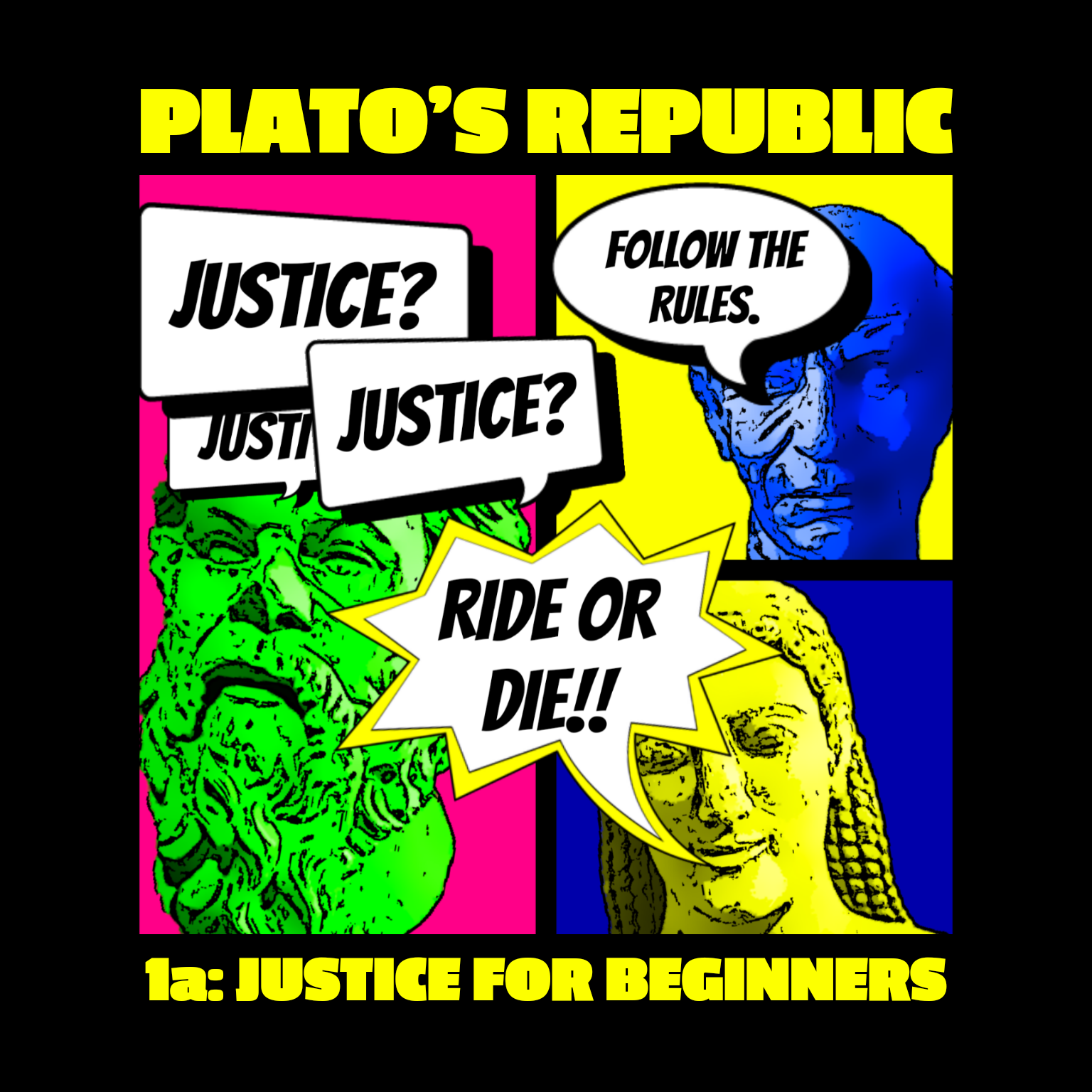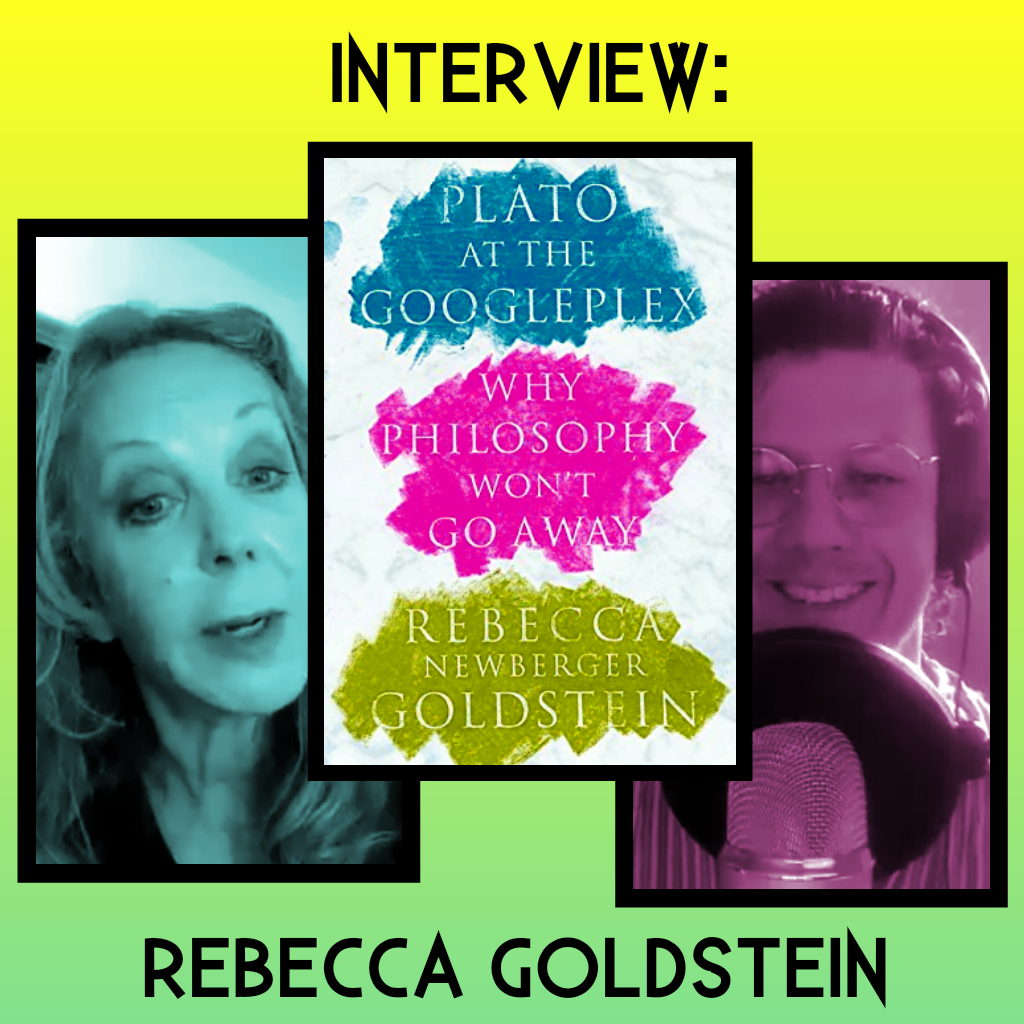Thought Lab 2: Tainted Art and Moral Luck
Is it ok to laugh at The Cosby Show? To rock to “Rock With You”? To eat with the knife that was used to murder your family? It may seem reasonable to separate the art from the artist and the instrument from the act, but Paul says that’s not how our brains work. He thinks human morality is driven by inconsistent irrational emotions and he think that’s a good thing. In our second Thought Lab, we talk about bad celebrities, moral luck, and why being a good person may not be up to you.
Plato's Republic 8: The Philosopher Kings
This book covers parts of books 5-6 of Plato’s Republic.
Who should rule the city in speech? Philosophers of course! In this episode, Socrates explains his most famous political proposal: philosopher kings. He wants the leaders to be smart and capable and virtuous. And charming and good-looking. Is that too much to ask?
In a democracy, it is. Socrates doesn't just say what good leaders look like he also says why democracies will never have one. Who’s to blame for bad democratic politics? Is it corrupt politicians or an ignorant majority? Yes!
Plato’s Republic 7: Socratic Family Values
This episode covers book 5 of Plato’s Republic.
What do you do when the private family causes too much corruption? Nationalize it! Create a giant family monopoly that includes every citizen in one giant clan. In this episode, Socrates explains his most normal proposal—that women should have jobs—and his most shocking, which involves a state eugenics program disguised as a religious festival.
This chapter makes some people think Plato’s a feminist and other’s say he’s a fascist. Either way, it shows us that values like family loyalty, political unity, gender equality, and meritocracy do not always fit well together.
Thought Lab 1: The Dead Chicken Experiment
This is the first of a series about thought experiments with Paul Sagar of King’s College London. We talk about dead chickens, incest, blackface and child sex dolls but really it’s about how to use thought experiments, psychologist Jonathan Haidt and whether ruthless consistency is really what anyone wants from a moral philosophy.
GiT Valentine's Day Special: Rousseau and Romance Past
I talk about a crush I had in Paris as a boy. Then Sep and I dig into Jean-Jacques Rousseau and Marcel Proust to explain what on earth was going on in my heart. Rousseau advises how to get from boner to bonheur. Proust explains why it’s easier to fall for someone you pass in a car than someone you actually have to talk to. We find out that the human heart is a liar that it's more fun to believe anyway.
Do Free Markets Make Free Humans? Interview with Jeffrey Bercuson
Jeffrey Bercuson is author of A History of Political Thought: Property, Labor, and Commerce from Plato to Piketty.
This book does a whirlwind tour through the history of political thought explaining how different thinkers have approached the commercial or money-making part of human life. We talk about how attitudes have shifted from ancient scepticism about commerce in Plato and Aristotle to its celebration in thinkers like Hegel and Hayek.
Bercuson also explains how, even if we accept the arguments of some of capitalism’s biggest boosters, we still wind up on the left side of the existing political options.
Granny Gore to Girl Power: Naomi Hamer on the History of Fairy Tales
Naomi Hamer of Ryerson University tells us an unfamiliar version of a classic fairy tale then chats about how children’s stories have changed and the different moral and political and economic factors that changed them. According to Hamer the seduction and cannibalism isn’t gone, it’s just less explicit. Also, “what big hands you have grandma!” is just as horny as it always sounded.
X-mas Movie Special with Sep
Sep of Sep’s Weird Movie Blog comes on to talk about Christmas movie and capitalist fairy tale, Trading Places. Sep is Good in Theory’s episode artist, editor, and BFF of the pod.
Plato's Republic 6: How to be a Good Person
This episode covers book 4 of Plato’s Republic. What does it mean to be a good person? What is justice?
To answer these questions, Socrates and the boys have built imaginary cities, raised educated and nobly lied to armies, and sent them all to live in a camp. Today’s the day Socrates brings it all home and explains his definition of justice both in the city and in the soul. And to boot, he explains the structure of the human soul.
Plato’s Republic 5: Lies, Noble Lies and Gymnastics
This episode covers the second half of book 3 of Plato’s Republic. Glaucon and Socrates develop a completely immersive education program for the guardians that controls every aspect of their social and physical environment. Then, they tell them it never happened because actually they were sleeping underground being built by the god to defend the city. Glaucon doubts anyone would believe this “noble lie,” but Socrates isn’t too worried. Ideology finds a way.
Politics v. Philosophy with Agnes Callard
Agnes Callard is a philosophy prof, Plato expert and public philosopher. We talk about the relationship between politics and philosophy (it’s complicated), why nobody should trust philosophers (they don’t know anything), and why human beings can’t even think something without someone else telling them they’re wrong.
Plato's Republic 4: Myths 4 KidZ
This episode covers parts of books 2 and 3 of Plato’s Republic. Adeimantus and Socrates start planning an education for the guardians. As it stands, young Athenians are fed an unhealthy banquet of lies written by the likes of Homer and Hesiod. Socrates wants new lies that set a good example for the kids. Lies with less fighting and sex and crying. Boring lies. And they might be for adults too.
Plato’s Republic 3: City of Pigs, Army of Dog
This episode covers the first part of book 2 of Republic. Glaucon and Adeimantus take over the conversation with Socrates and challenge him to prove that it’s good to be good. Glaucon gets wild with a ring of invisibility. The gang builds a utopian city of pigs and meets an army of good-natured dogs.
Interview: Paul Sagar, What's Your Problem With Plato?
Paul Sagar is a lecturer in political theory at King's College London and the guy who played Thrasymachus in book 1.
He actually doesn't like reading Plato very much. I ask him why.
Plato’s Republic 2: Good to be Bad
In this episode, Socrates goes up against his most formidable opponent yet: the sophist Thrasymachus.
Thrasymachus leaps at Socrates “like a wild beast” and yells at him for playing dirty. Then, he tells the boys that morality is a lie and that they should do as much injustice as they can get away with.
Socrates responds by winning the argument in the least persuasive way possible.
Plato's Republic 1: Justice for Beginners
Plato’s Republic is full of bad arguments and worse political proposals and it may still be the most influential work of political theory ever.
Book 1 sets the stage for an all-night conversation between Socrates and some friends that covers: ethics; politics; education; epistemology; psychology; and a whole lot more.
It all gets started with the question “what is justice?”
Athens: Ahoy Polloi!
The Athenians ran their government like an open mic night, pulled off one of the greatest golden ages in human history and show why true democrats hate elections.
The secret sauce of Athenian greatness? Seamen. Lots of seamen.
Sparta: Killer Beehive
The Spartans are legendary fighters and legendary patriots. They believed in equality, meritocracy, and freedom. They also ran the most brutal slave state in the ancient world.
Their secret? Institutions!
Interview with Rebecca Goldstein
Rebecca Goldstein wrote a book of Platonic dialogues, in which Plato is on a 21st-century book tour in America. It’s called Plato at the Googleplex.
We talk about Plato and whether you can do philosophy and politics at the same time, and the Harper’s letter in favour of “open debate” that Goldstein signed and Twitter got mad about. We discuss when, if ever, it’s a good idea to constrain free speech and inquiry.
The Polis: Freedom Farms, Phalanxes and Class War
The Greeks invented political liberty and everyone loves them for it.
Were they freedom-loving geniuses? Maybe.
Were they farm boys who could handle a spear? Yes.
Were they deep in debt and looking for a way out? Absolutely.



















